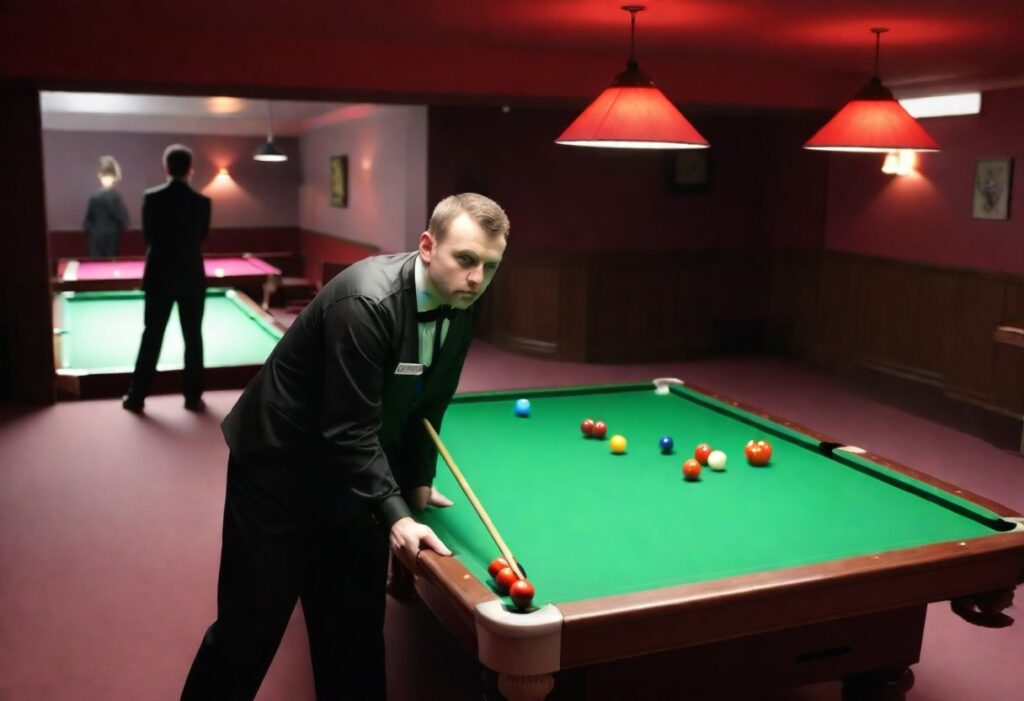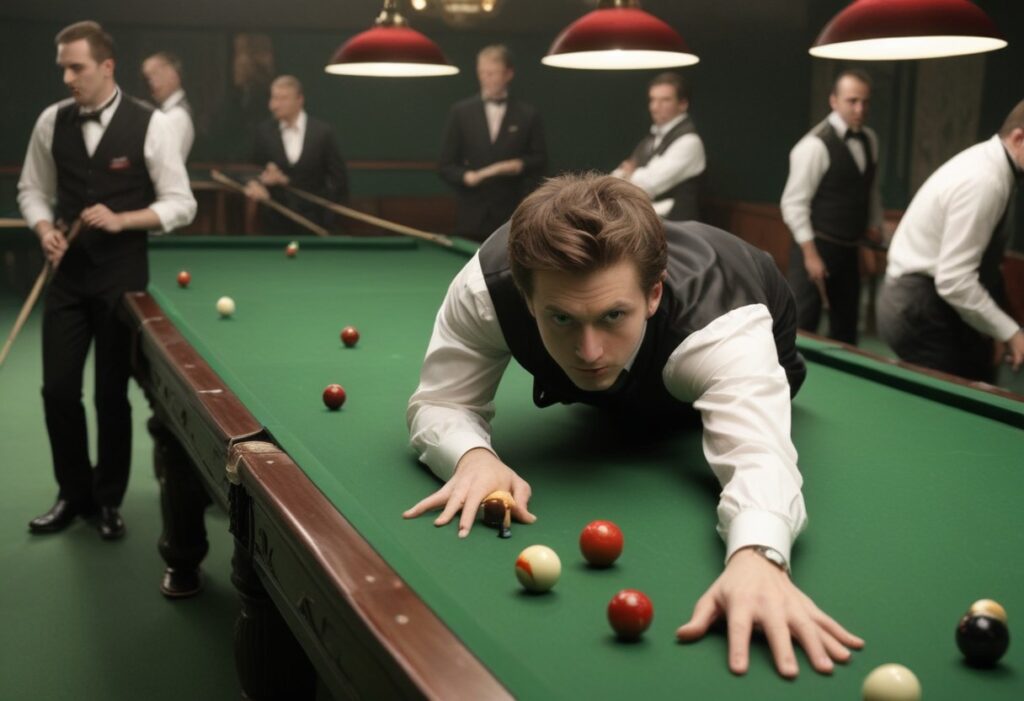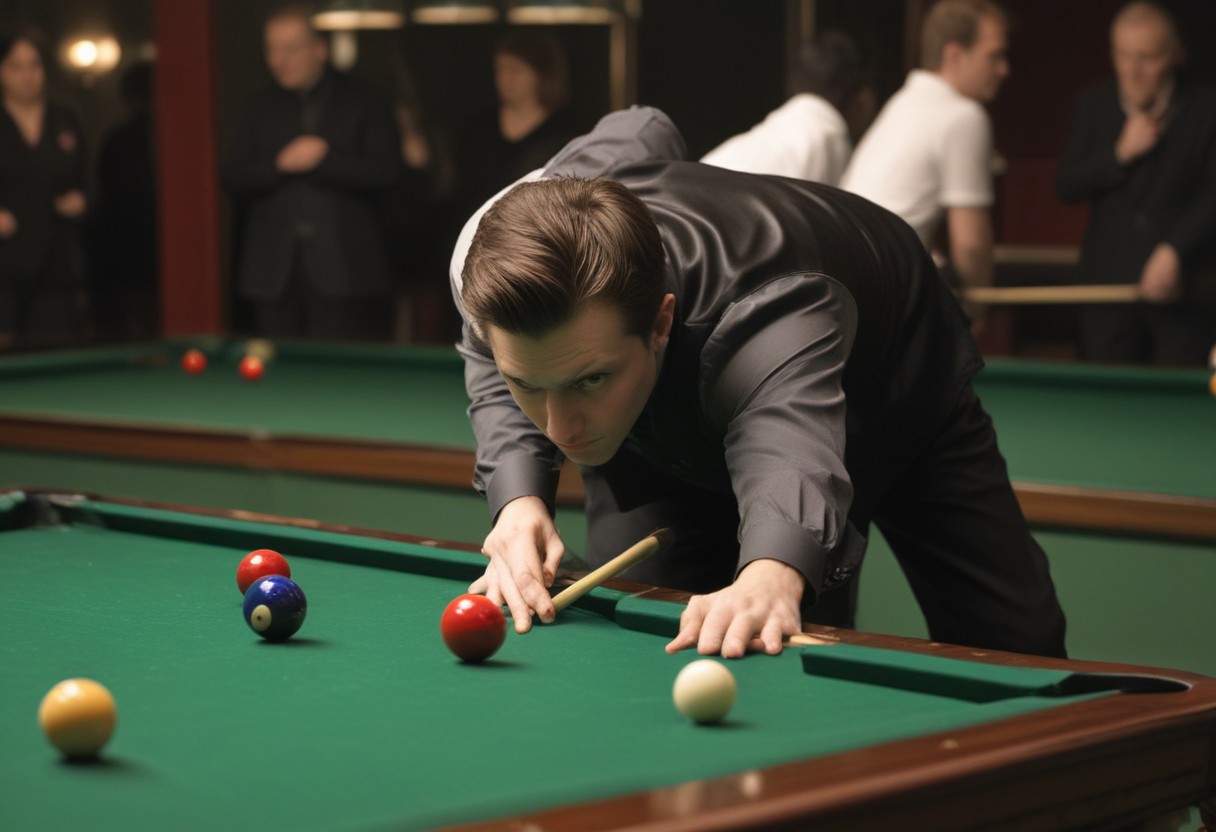sorumnoce.com – Cue sports such as Snooker and Pool are not only games of skill and strategy but also disciplines rich in tradition and decorum. Whether you are playing in a casual setting or a competitive environment, understanding and adhering to the unspoken rules of etiquette is essential. This guide will delve into the key aspects of etiquette in snooker and pool, helping both novice and seasoned players maintain the respect and decorum these classic games deserve.
Respect the Equipment of Snooker and Pool:
- Handle Cues with Care: Always treat cues with respect. Avoid banging them against the table or using them in ways they were not intended, such as using snooker and pool, them to move balls around.
- Mind the Felt: Be cautious with the table surface of snooker and pool,. Never place drinks, chalk, or other items on the felt. The oils and debris from these can damage the playing surface and affect the game’s quality.
Observe Silence and Concentration:
- Quiet During Shots: Maintain silence when your opponent is lining up and taking their shot. Noise can be distracting and is considered disrespectful.
- Stillness is Key: Similarly, avoid unnecessary movements around the table when someone is shooting. This includes sitting still if you are in the line of sight of the shot being played of snooker and pool.
Acknowledge Good Play:
- Sportsmanship: It is customary to acknowledge good shots by your opponent. A simple nod or a quiet “good shot” can foster a friendly and respectful atmosphere.
- Handle Defeat Gracefully: Whether in a friendly snooker and pool, always be gracious in defeat. Congratulate your opponent and avoid making excuses for your performance.


Be Mindful of Your Turn:
- Wait Your Turn: Do not interfere with the table or practice shots while it is not your turn. Stay away from the table until it is your turn to play.
- Prompt Play: While it’s important to take necessary time to line up shots, avoid excessively slow play. Be ready to take your shot when it’s your turn to keep the game moving smoothly.
Dress Appropriately:
- Follow Dress Codes: Many clubs and tournaments have specific dress codes. Make sure to adhere to these requirements, which might include wearing waistcoats, bow ties, or polished shoes in more formal settings.
- Casual Settings: Even in less formal environments, wearing appropriate attire shows respect for the venue and the game.
Avoid Unsportsmanlike Conduct:
- No Distractions: Intentionally trying to distract your opponent during their shot is considered highly disrespectful and against the spirit of the game.
- Chalk Wisely: Use chalk discreetly and avoid chalking over the table to prevent chalk dust from settling on the felt.
Handle Disputes with Dignity:
- Rule Clarifications: If there is a dispute about a rule, discuss it quietly and respectfully. If necessary, refer to a rulebook or ask a third party to interpret the rule for you.
- No Arguing: Avoid raising your voice or becoming confrontational. Remember, maintaining the integrity of the game is more important than any single point or game.
Conclusion:
The essence of cue sports lies not only in the ability to make great shots but also in playing with integrity, respect, and sportsmanship. By mastering the unspoken rules of etiquette in snooker and pool, players contribute to a dignified and enjoyable game environment. Remember, the respect you show to the game and your opponent reflects your character and respect for the rich tradition of cue sports.
FAQs
1. What is the basic etiquette for starting a game of snooker and pool?
Coin Toss or Lag: Most games start with a coin toss or a lag, which determines who will break. It’s important to accept the outcome graciously whether you win or lose.
Handshake: It’s customary to shake hands with your opponent before and after the game to show good sportsmanship.
Game Setup: The player who wins the toss or lag generally gets to decide who racks or chooses the type of game in pool.
2. How should players conduct themselves during a snooker and pool match?
Quiet and Stillness: Always remain quiet and still when your opponent is taking their shot. Movement or noise can be distracting and is considered disrespectful.
Acknowledging Fouls: If you commit a foul, it’s expected that you acknowledge it immediately, even if the foul wasn’t noticed by your opponent or the referee.
Avoiding the Table: Do not lean on the table or touch any balls on the table unless you are shooting. In snooker, it’s especially important as even slightly moving a ball can change the course of the game.
3. What is the etiquette regarding ‘calling shots’ in pool?
Clear Communication: In some casual games and specific pool games like 8-ball, you must call your shots, which means you have to specify the ball and the pocket in which you intend to sink it. Always ensure that your call is heard and acknowledged by your opponent to avoid disputes.
Honor System: It is expected that players will be honest about whether the shot went as called. Disputes should be settled calmly and respectfully.
4. How should players handle winning or losing a game?
Congratulate or Commiserate: Always shake hands with your opponent after the game, congratulate them on a game well played, or show empathy if you win and they lose. Be modest in victory and gracious in defeat.
Post-Game Discussion: While it’s okay to discuss the game afterward, avoid gloating about your win or being overly critical about your opponent’s play. Keep any analysis constructive and friendly.
5. Are there any specific rules about equipment care during gameplay?
Chalk Use: When chalking your cue, make sure to do it away from the table to avoid dropping chalk on the baize, which can affect the play.
Cue Care: Handle your and others’ cues with care. Avoid laying your cue on the table as it might roll off or get in another player’s way.
Respect Equipment: Treat all equipment, whether it’s yours or provided by the venue, with respect. This includes cues, balls, the table, and even the triangle.
